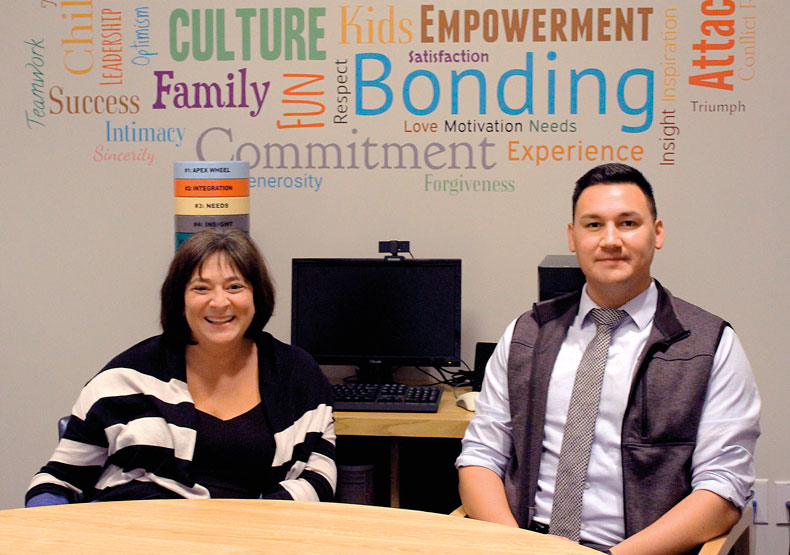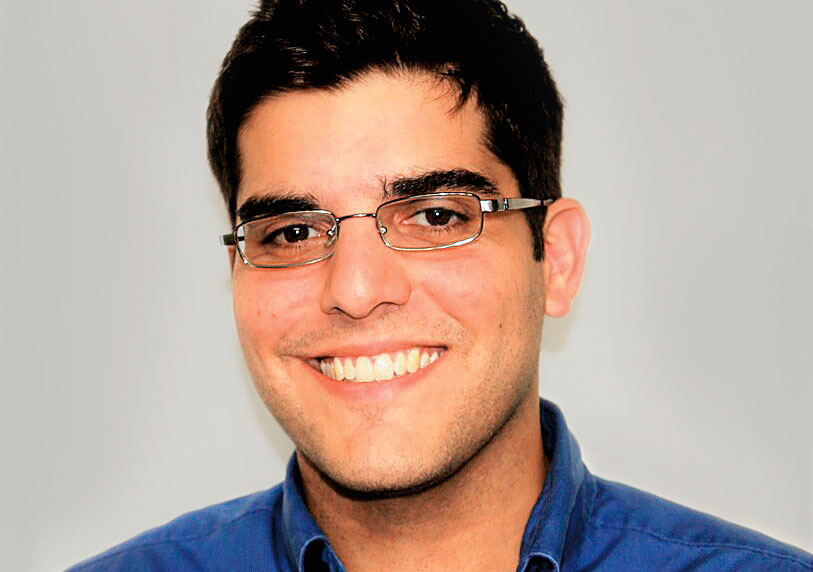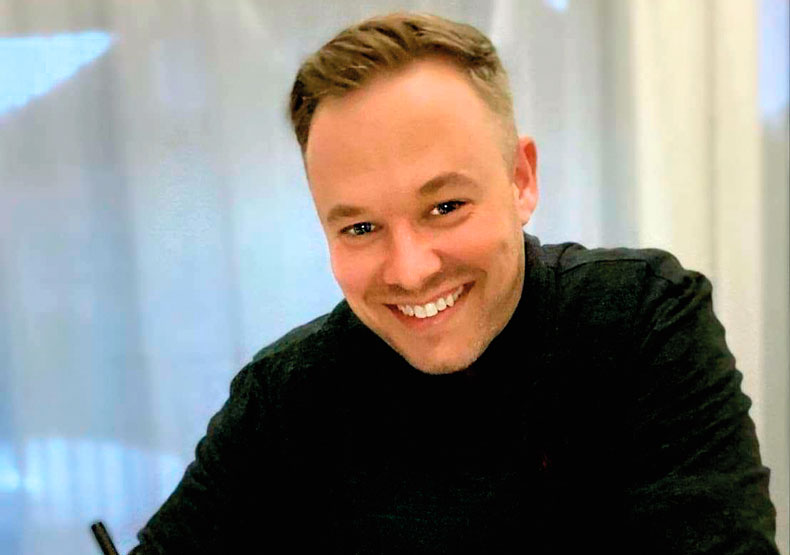Creating Relationships: A Focus on Supervision

Experiential education is a hallmark of training at William James College and a core value of the mission, one that integrates rigorous academic instruction with substantial hands-on experience making fieldwork essential to students’ future success. In fact, students spend more than 400,000 hours completing field education each year, 156,000 of which are devoted to providing behavioral health and consulting services to clients. Site supervisors, tasked with overseeing the field placements required for a majority of the College’s degree-granting programs, serve as linchpins in this collaborative work.
“Site supervisors play an integral role in the training and development of our students across the various programs within the College, and it would be impossible to provide these experiential opportunities without this vital partnership,” said Director of Field Education for Counseling and Behavioral Health, Melissa Koen, MS, LMHC who—in an ongoing effort to create valuable, enduring relationships with suitable organizations while connecting Clinical Mental Health Counseling students with sites that fit their interests—relies upon more than 300 Boston-area mental health professionals in any given year. Throughout the process, William James students are leaving indelible marks in their respective fields as eager and committed learners; experts in the foundations of leadership, teamwork, academic rigor, facilitation, and seeking to know the process; and practitioners equipped with a lens toward cultural awareness and sensitivity.
We connected with field site supervisors from each of the four academic departments at William James College who shed light on different facets of the work, from what the role entails to best practices when it comes to participating in this essential work. Here’s what they had to say:
Pamela S. Friedman, PsyD, ABPP
Clinical Psychology Supervisor, Director of Neuropsychology Practicum Training
Brigham and Women's Hospital, Center for Brain Mind Medicine

Erica Merrill and Dr. Pamela S. Friedman
More than two decades ago, Pamela S. Friedman, a graduate of the class of 2000, completed her second-year practicum at the multidisciplinary neuropsychology practice where she’s now employed and directs the practicum program—a fact rendering her uniquely positioned to understand the long-term value and benefits of site supervision.
“Students bring enthusiasm and fresh perspectives [to the work],” Friedman said, pointing to another perk: Many of those she has trained go on to become clinicians at area institutions and, by extension, her colleagues. “What better way to know somebody's work than to spend a year being part of their training and professional trajectory,” said Friedman who embraces every opportunity she has to establish connections within the Boston neuropsychology community.
Students placed with Friedman and her colleagues are immersed in all aspects of the evaluation process—from test administration and scoring, clinical interviewing and case conceptualization to writing reports and providing feedback—which is not to suggest there is a one-size-fits-all approach.
“We really want to make sure [the field placement] is not a cookie cutter experience,” she said, a goal augmented by the location of her practice within an academic medical center—which means the cases in which students are involved benefit as well.
“These cases are reviewed in individual supervision, discussed in group supervision with neuropsychology post-doctoral fellows, and sometimes presented at our multidisciplinary rounds, so patients are getting multiple sets of eyes and lots of thoughtful discussion that may not happen in the same way when seen by one provider,” said Friedman who—both in her direct supervision of students and communication of feedback to them and faculty at William James—exhibits a willingness to grow, change, and embrace flexibility whenever possible. “Being open to feedback allows us to modify and enhance the program over time and provide the best possible training experience,” she said.
Some exciting new changes in the training programs include the addition of internship-level training in neuropsychology in conjunction with our colleagues in psychiatry, additional opportunities for tiered supervision with more advanced trainees, greater involvement in the group intervention program, and an increased focus on providing feedback to patients and families. Friedman and her colleagues value student input and are committed to improving and growing the program over time.
Lara Finn, LMHC
Clinical Mental Health Counseling Practicum Coordinator
Lighthouse School, Coordinator for Resource Administration

Lara Finn, Clinical Mental Health Counseling Practicum Coordinator, Lighthouse School, with WJC Clinical Mental Health Counseling alum, Gdebanen-Noodenimin (De) Clarke.
After four weeks of immersive training, practicum students at Lighthouse School® transition to individual and group cases—comprised of kids ages 3–22 at the mental health treatment center and school in Chelmsford, MA—for whom they serve as primary therapists for the duration of the year.
“William James students are immersed each day, from 8:00 AM–3:00 PM, in 100% direct care of an intensive population,” said Lara Finn (who oversees the internship program) of work spanning supporting classroom activities in students’ homerooms to providing counseling to students in crisis and myriad situations in between. While two hours each week are set aside for the intern and supervisor to meet, the work extends far beyond this dyad. “Our supervisors are always on site, providing ongoing learning opportunities, which gives interns a valuable experience and helps train them in the best way to work with our kids,” said Finn of an environment where every situation is viewed as a treatment opportunity.
The ongoing process of being together, doing the work together, then processing together yields mutually beneficial results. “[Serving as a site supervisor] is a good way to keep yourself current as a clinician and allow for your own practice to expand,” said Finn who underscores the importance of both training and engaging the best clinicians, no matter where they go on to spend their careers. “William James students come out [of their field experience] as flexible, patient professionals—with very well-rounded perspectives—who are pretty much prepared for anything,” she said of a shared desire to cultivate team players who will take their experience into the field and beyond.
Victor Branco, MA, EdS, NCSP
School Psychology Supervisor
Wakefield Memorial High School, School Psychologist

Victor Branco, MA, EdS, NCSP
Depending on where they are in their training, interns at Wakefield Memorial High School spend two to five days each week under the direction of Victor Branco who strikes a balance between structured time on tasks and ongoing supervision. “First-year interns start by shadowing and observing, while third-year interns are providing individual mental health counseling, administering assessments, running groups, and presenting at IEP meetings,” said Branco who spends three, half-hour blocks a week connecting with each of his interns to role play strategies for having difficult conversations with parents and students and discuss how to best support students with mental health or learning issues, or those who are feeling isolated or having trouble making friends.
“I’ve learned to really bring the interns into the process,” Branco explained of near constant feedback, whether writing reports or tackling a counseling case, to model the continuous need for growth—especially when it comes to learning about social justice and building cultural competence. “Anytime I encounter someone whose background is entirely different from mine, I use that experience to consider what I learned,” he said of another skill integral to his role as site supervisor, especially in a demanding setting where mental health issues among youth have soared. (According to the National Association of School Psychologists, one in five school-aged children experiences mental illness in a given year.)
At the conclusion of their time together, Branco wants his interns to join the broader community with a sense of confidence and voice. “Feeling ready and strong in being an advocate for student learning and emotional well-being,” he said, citing the instrumental role school personnel stand to play in the day-to-day lives of young people. In the end, Branco considers serving as site supervisor a huge asset to his own practice—one that not only keeps him current with educational trends but also forces him to be more reflective, “and think about [his] own thinking as [he] share[s] it with interns.”
Vance Parrish, PsyD
Organizational and Leadership Psychology Supervisor
Feeding the Wolf Consulting, Co-Founder

Vance Parrish, PsyD
Since graduating from William James College in 2021, Vance Parrish, PsyD, has transitioned a career in intelligence to consulting with corporate and federal agencies in organizational dynamics. He is building momentum in this work via multiple avenues ranging from acquiring talent and creating leaders to fostering an environment of psychological safety and reducing turnover. Parrish also serves as a Field Placement site supervisor, where he’s keen on giving students practically applicable skills—namely, delving deep into research; collecting both qualitative and quantitative data; and doing statistical analysis. As to the former Department of Defense intelligence officer’s go-to tactic? “Hands-on experience that builds upon the foundation William James provides and offers students the chance to step into a role where they can stretch their brain muscles and learn skills that are going to be important as they develop their careers as organizational psychologists,” said Parrish of an approach that places a real weight on the students’ ability to learn by doing.
In his role as a supervisor, Parrish provides mentorship, deliverables, and outlines the scope of any given project, then gives practicum students free reign to approach the work as they see fit. “They’re learning as they’re doing, and I’m providing the guidance,” he explained, likening his role to bumpers in a bowling alley: designed to provide the buffer of a left and right boundary and ensure students stay in the lane of what they are trying to accomplish—which underscores his best practice in site supervision: Avoiding the inclination to micromanage.
“If you stifle the direction the student is taking… they miss the opportunity to make mistakes, develop learning opportunities and [by extension] chances to excel,” Parrish said, which is why he encourages students to think broadly and try new things along the way. In the end, this approach allows him not only to ensure the skills he’s reinforcing are translatable in the future, after the practicum ends, but also that, “[they] are going to make each William James student a value-added member of the team—no matter which one they join.”
Best Practices in Field Supervision
- MEET students where they are in their training; supervision is not a one-size-fits-all approach.
- CULTIVATE curiosity by encouraging students to ask lots of questions.
- INCLUDE students in the process, the thinking, and the conversation.
- GIVE feedback for growth—bring positives first and be compassionate to the student’s learning edges when mentoring.
- SEEK regular feedback about what’s working, what’s not, and employ suggestions.
- LEAN on colleagues with experience to avoid reinventing the wheel.
- MAKE SPACE for reflection and potentially uncomfortable conversations.
- BUILD interdisciplinary, integrated team players who you’d enjoy working with in the future.
- Tags:
- In the Community
- Alumni
Topics/Tags
Follow William James College
Media Contact
- Katie O'Hare
- Senior Director of Marketing
- katie_ohare@williamjames.edu
- 617-564-9389
